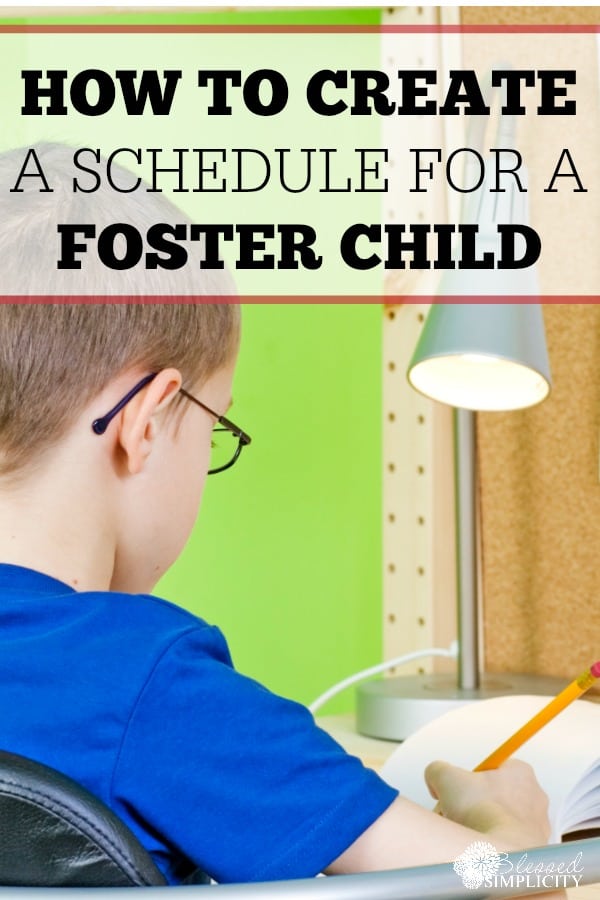How to Create a Schedule for a Foster Child
When you create a schedule for a foster child to follow, you are establishing boundaries, security and safety that will help the child settle into your home faster and build trust quicker. Children in foster care need the stability that comes with knowing what is coming next. A schedule can help.

*This post contains affiliate links.
Routine and knowing what to expect can quickly build trust and a feeling of security for foster children.
Giving them a schedule to help manage gives them a sense of control when everything around them seems completely out of control. This sense of security and control can be a complete game changer for a child in foster care.
How to Create a Schedule for a Foster Child
Start with the Big Picture
Start with an overall large block schedule of what a typical days looks like in your house. Be sure to note any major differences that occur on weekends or on certain nights of the week. Talk about how these changes will impact the overall routine of the day and what accommodations need to be made to make the schedule run smoothly that day.
Example: Most nights dinner happens at 5pm. However, Tuesday night karate class is at 4:30, which pushes dinner to 6:30. Plan for a snack right after school and another snack before dinner. This also pushes the bedtime routine back a bit.
Note: Meal times can be a trigger for some foster children, especially those who have been neglected.
It is often a good idea to have this larger over view schedule printed and posted somewhere in your house, possibly in a protective sheet. I like these dry erase pocket sleeves because they protect the printed schedule, but also allow for notes in dry erase marker for unusual changes like doctor appointments, etc.
Ask Questions
Ask the child what things are important to him in the week like television shows, bedtime routines, church, etc. Work these things into your schedule if they are healthy and it is possible to accommodate them. Talk about why these things are important, and what they represent to the child.
It can be difficult to determine what elements of a child’s typical home life can be trauma triggers and which ones will bring comfort. It will be important to observe behaviors that occur around these portions of your schedule.
Plug in Required Meetings
Many times foster children have required weekly meetings with family members, counselors and therapists. Work these appointments into your schedule and consider what transitions are needed before and after these meetings. Having these meetings on a clearly visible schedule can help you and your foster child prepare for them.
Tip: Set aside some time to talk about family visits, court appointments and visits with your case worker. Get a plan for what will happen before and after these appointments.
Zoom in on Smaller Segments
Next you can focus on smaller segments of the day and develop routines for those times of the day like:
- Morning Routines
- After School Routines
- Bedtime Routines
Tip: Download the free printable routine cards below to use as visual reminders of these routines.
Routine Works Best
Establishing routines where one activity follow another consistently at certain times of day creates a feeling of stability and security for a child. This also creates a habitual routine that you will not need to prompt, which will give a child a sense of ownership and control of his own schedule. The less a child has to think about what is coming next, the more secure they feel.



This is the kind of great info you don’t think about until it directly affects you. Thanks so much for sharing this post!
Elizabeth
http://www.halfbakedbettie.com
I’ve never fostered a child, but I’m sure that routine and organization is very important! Thanks for sharing with SYC.
hugs,
Jann
This is a great idea. Thanks for sharing at Home Sweet Home.